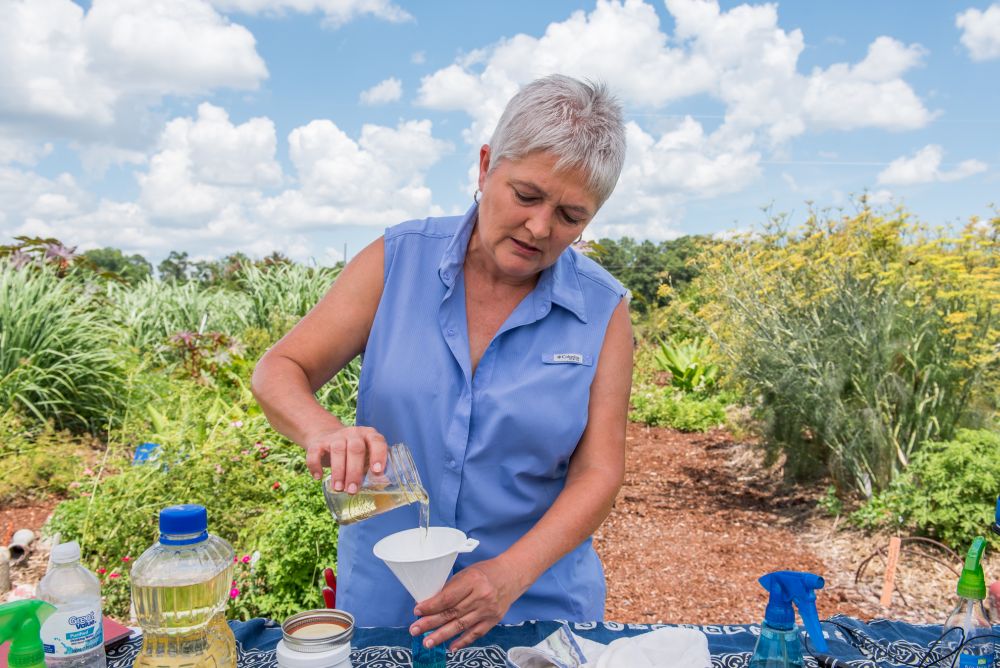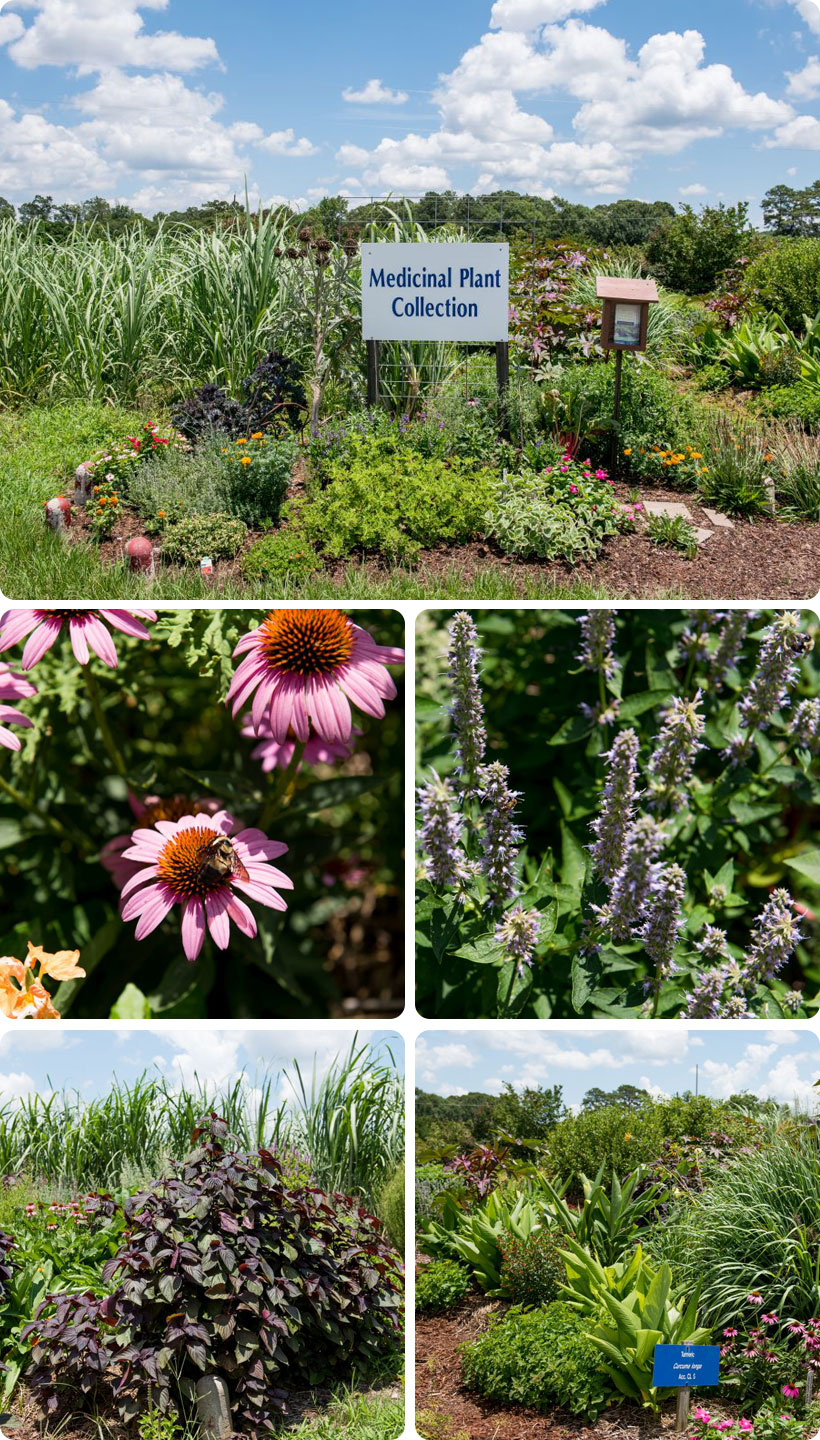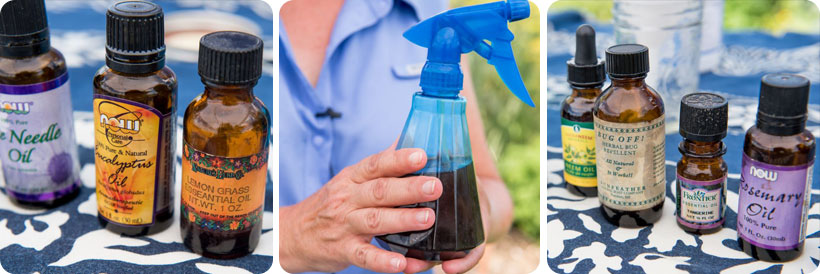
Crush and rub.
This little-known remedy for keeping mosquitoes at bay – by simply rubbing your skin with the leaves of mosquito-repellant plants – sounds too easy, but the tried-and-true method repels the pesky insects, said Tia Gonzales.
With nearly 30 years of experience as a horticulturist, Gonzales, Agricultural Program assistant at Auburn University, knows the hidden properties of many commonly known plants.
For example, Gonzales said that rose-scented geraniums, citronella, lavender, basil and garlic, rosemary, wax myrtle, lemon balm, lemon grass, lemon thyme and lemon verbena are certain to send the flying vermin to the other side of the yard.
“Using these plants turns you into a walking mosquito arsenal,” said Gonzales, who earned her horticulture degree at Auburn University and is responsible for its 1-acre medicinal plant garden. “The key is to bruise and abrade the leaves, releasing the oils. Crushing releases the plant’s chemical properties and scent.”
Gonzales recommends grabbing several leaves or a cutting from mosquito-repelling plants such as basil or lemon balm and crushing the plant in your hands. Then rub the plant leaves across your bare skin, releasing the plants’ oils and scent that is a natural bug repellant.
“If I want to sit out on my deck at night, I crush the leaves of rose-scented geraniums and then rub them on my arms and legs, making sure to release the plant oils and scent,” she said.
It’s a trick that Gonzales hit on many years ago, when she used to track timber for the state. When Gonzales ventured into dense forests and encountered swarms of mosquitoes, she was armed with a secret weapon: crushed garlic in her pockets. She placed crushed garlic under her hat, where her body heat would steam the oil and release the scent.
“I call it the hat trick,” Gonzales said, with a laugh. “Of course, you don’t want to use garlic when you’re sitting outside with friends and family. There are so many nice-smelling plants to choose from that work as effectively as garlic.”

Taking a midday stroll through the university’s Medicinal Plant Garden, Gonzales pointed to rose-scented geraniums.
“I like having plants that do something,” she said. “Every plant needs to have a job. The rose-scented geranium is a great plant that grows in full sun, and it’s very drought-resistant. They will die in the winter, but they come back. We bring cuttings in and root them.”
She noted the rose-scented geraniums – common at specialty nurseries but less available at “big box” stores – are sold on-site to the public.
Make your own mosquito repellant

While Gonzales said it doesn’t hurt to light a citronella candle outside, she makes her own natural mosquito repellant. She uses soybean oil as a base, then adds up to 20 drops of natural oils such as lavender, neem oil and catnip oil in a small spray container. Those oils are extremely efficient; catnip oil is proven more effective than DEET in repelling mosquitoes, she noted.
“Neem oil smells a little garlicky,” Gonzales said, “but the other smells on top can take away that smell.” If placed in a cool, dark place, the mixture will stay fresh for up to two years. Best of all, the mixture is nontoxic.
Spraying a bit of one of her concoctions, Gonzales said, with a smile, “I feel so refreshed – happy and mosquito-free.”
The public is invited for a free visit to Auburn University’s Medicinal Plant Garden 365 days a year. Visitors will find lists with traditional uses for each plant for reference during self-guided tours. Staff members give tours of the garden every third Thursday through October.
Don’t miss out! Subscribe today to have Alabama’s leading headlines delivered to your inbox.

